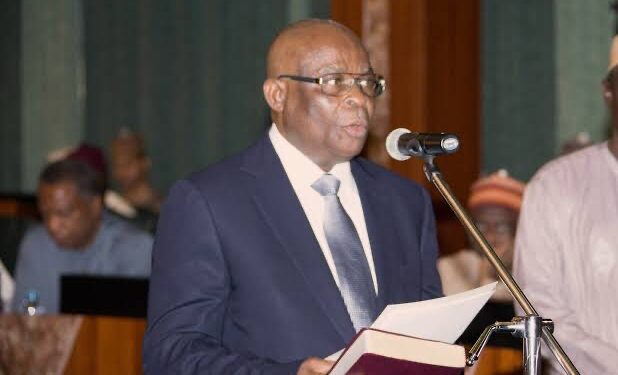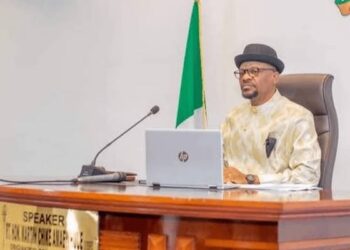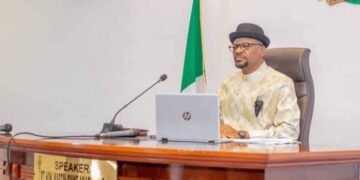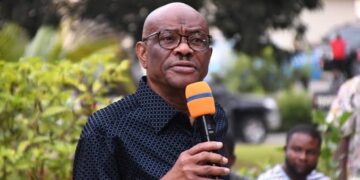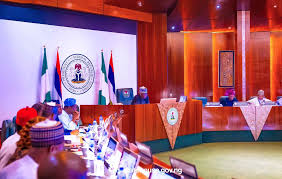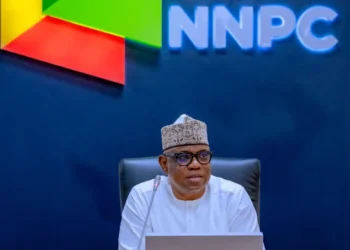On Thursday, the Court of Appeal in Abuja granted permission for the Federal Government and former Chief Justice of Nigeria, Justice Samuel Nkanu Walter Onnoghen, to attempt an out-of-court settlement regarding his removal as Chief Justice. This decision marks a significant step in a case that has drawn considerable public attention since it began.
The agreement to seek a peaceful resolution comes after both parties indicated they were making substantial efforts to resolve their disputes amicably. This cooperation reflects a willingness to avoid the lengthy and often contentious nature of court proceedings.
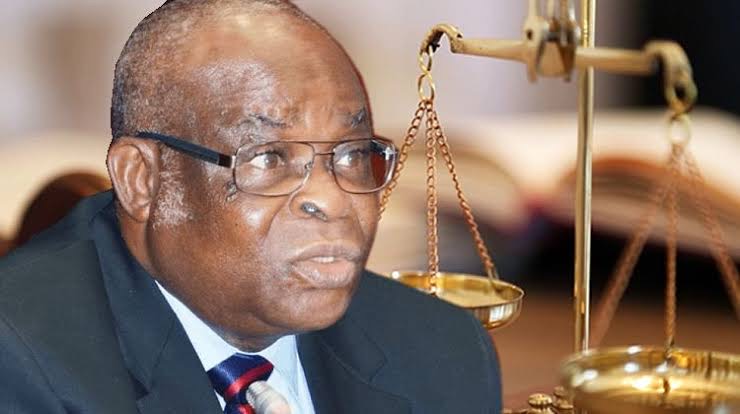
The case has been a prominent issue since 2019 when former President Muhammadu Buhari removed Onnoghen while he was facing serious charges at the Code of Conduct Tribunal for allegedly failing to declare his assets accurately.
During the court session, Onnoghen’s lead counsel, Dr. Ogwu James Onoja, informed the panel of three judges that discussions between the two sides had been ongoing. He expressed optimism about the potential for a positive outcome and requested a one-month adjournment to finalize the settlement talks. This request indicates a desire for a resolution that could satisfy both parties without further legal battles.
Tijani Gazali, representing the Federal Government, supported Onoja’s request. He reiterated the government’s position, stating their commitment to settling the matter out of court. This level of cooperation is relatively uncommon in high-profile legal disputes and highlights the importance both parties place on finding a resolution.
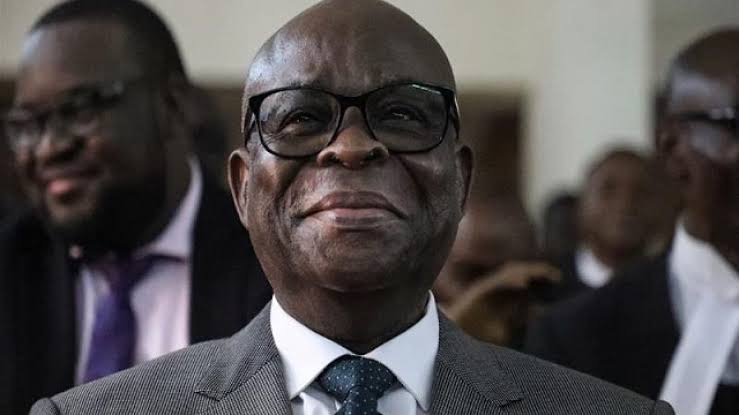
Justice J. O. Oyewole, who presided over the proceedings, responded positively to the request for an adjournment. He directed both parties to document their settlement terms and submit them for court approval once they reached an agreement. This instruction emphasizes the court’s role in ensuring that any settlement is formalized and legally binding.
The next court date has been set for November 4, which will allow both parties additional time to negotiate their settlement terms. The outcome of these discussions will be closely monitored, as they could set a precedent for how similar cases are handled in the future.
Onnoghen’s legal troubles began in 2019 when he was prosecuted by the Federal Government for allegedly making false declarations of his assets. The Code of Conduct Tribunal found him guilty, leading to his removal from office and a ruling that required him to forfeit assets he failed to declare. The case has raised important questions about accountability and integrity in the judiciary, as well as the proper procedures for handling allegations against high-ranking officials.
Unlike previous court appearances, Onnoghen did not attend this session. He is seeking to have the Court of Appeal overturn the tribunal’s decision, which not only removed him from office but also ordered the forfeiture of five of his bank accounts. The outcome of this appeal could have lasting implications for Onnoghen’s career and the broader judicial landscape in Nigeria.


